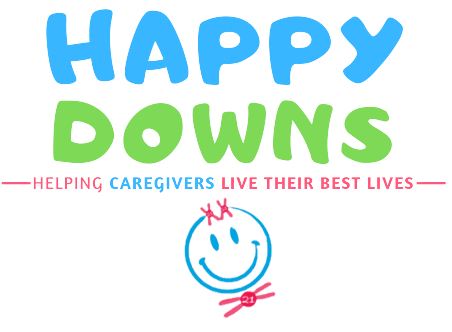Chances are, this is the first time that you are hearing the term “compassion fatigue”…am I right? No worries guys, you are not alone. I mean, this is not exactly the sort of thing that comes up in everyday conversation. I do believe, however, that it is important for family caregivers to be aware of the facts of compassion fatigue, as many of us are experiencing it right now, but have not the slightest idea of how to name and identify what it is that we are going through…and this just adds to our frustration. When you can at least name a thing, then you can start planning a course of action to address that thing.
What is Compassion Fatigue?
Imagine this scenario: So, here I am, a sibling to my younger sister who has Down Syndrome. When I was younger (childhood and teens), I had what seemed to be this limitless capacity for helping my sister…that person whom I love dearly. I zoned in on my sister’s welfare and needs over the years, as I transitioned to being her primary caregiver. I stepped in when my parents did not know what to do when she completed primary school and got her into a special education school for secondary students. Now, she was living under my roof.
Managing finances to ensure that the bills are paid, food is on the table and that we have a safe place to live; ensuring that I am able to afford medication and healthcare for my sister; preparing meals, cleaning, finding activities for her to do and paying for these activities (e.g. dance and art classes); all these things I had juggling…and was doing a pretty good job, if I could say so myself.
But, as the years went by, I found myself going through the motions of taking care of my sister and found that I was neglecting myself…my own goals, dreams, wants and desires. This led to emotional and physical exhaustion and then something happened that surprised me…I had this significant decrease in empathy…gone was that limitless capacity to help and to care.
This my friends is the best picture that I could paint for you, to describe compassion fatigue…emotional and physical exhaustion paired with a significant decrease in empathy.
Some Causes of Compassion Fatigue
As caregivers, we so easily get in the routine of making sure that everybody is ok, all the time. But I want you to understand that compassion fatigue is quite real and it can be quite harmful…for you and your loved one. Experiencing high levels of stress, for long periods of time, can negatively affect your attitude, health, and your ability to cope with your daily responsibilities…caregiving and otherwise.
The following are some of the things, we as caregivers do, that may lead to compassion fatigue:
- Having unreasonably high expectations of ourselves,
- Having difficulty saying “No”,
- Not asking for help and rarely taking breaks,
- Ignoring our own health concerns,
- Consistently putting other people’s needs ahead of our own,
- Feeling as though we are the only ones capable of providing the care our loved one needs.
Be honest with yourself. Take a look at the list above and see what habits you have that may lead you to experience compassion fatigue.
The Signs/Symptoms of Compassion Fatigue
Also, do you notice yourself experiencing any of the following:
- Physical and/or Emotional Exhaustion (I can hear you saying “All the time!”),
- Feelings of dread or guilt,
- Physical ailments,
- Anger & irritability,
- Difficulty making decisions,
- Feeling disconnected,
- Self-isolation,
- Trouble finding meaning in caregiving,
- Increased anxiety or irrational fears,
- Negative change in job performance at your “9 to 5”,
- Trouble sleeping,
- Feeling completely unable to cope anymore?
It is so important that we are honest with ourselves about the way we feel and what we are experiencing, as being in denial will only prevent us from addressing our truth and ultimately lead to resentment towards our loved ones.
How to Prevent/Reduce Compassion Fatigue
If you believe that you have compassion fatigue, fret not, there is hope! The first step is acknowledging how you feel and you have done that. The next steps are as follows:
- Explore respite care options. This can be provided by a friend, volunteer, family member or healthcare provider. It can be for as little as an hour (might seem like a short time, but every little break counts towards good mental health).
- Become a part of a caregiver support program (online or in-person).
- Keep a journal to record your thoughts and feelings related to caregiving.
- Ensure that you designate time to spend with friends and keep your social life alive.
- Speak with a counselor/therapist about your feelings.
- Choose to do healthy activities in your spare time (I can hear you say “What is that?”, see the point above relating to respite). You can do things like meditating, going for a walk, engaging in your favorite hobby.
- Have a self care plan that takes care of your physical, mental and emotional health; e.g. exercise and good nutrition, going out with friends and learning a new skill just for your development; and going to the spa and engaging in your choice of spiritual practices.
Caregiving and Compassion Fatigue
Many family caregivers experience compassion fatigue. This does not make you a bad person, so please do not feel discouraged or feel alone. Know that this community of caregivers are here for you…to encourage you and to share our own experiences. So, do not hesitate to reach out for help or just to vent. We are here…ready to listen.






